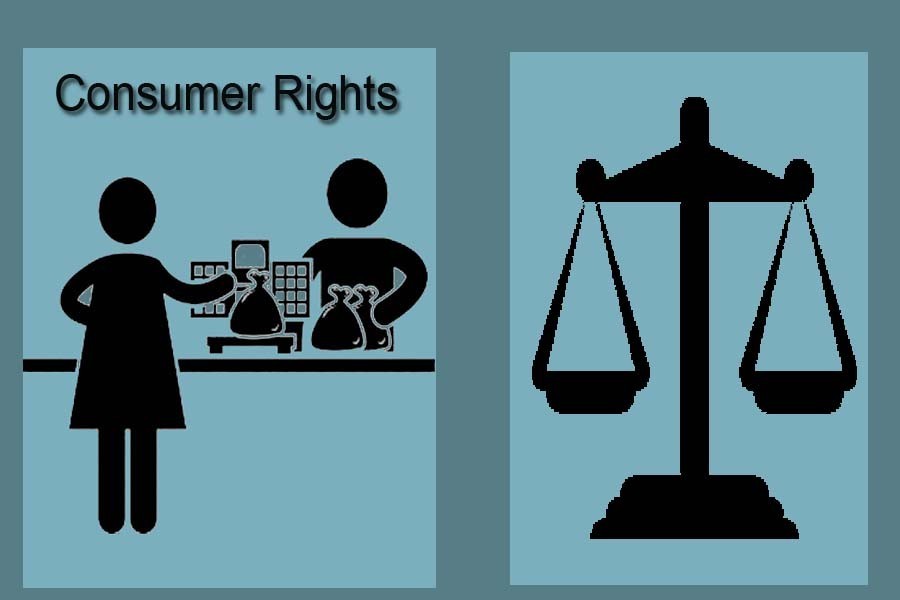
Published :
Updated :

The consumer-rights protection law, enacted in parliament way back in 2009, is still barely visible as an instrument to look after consumers' interest in the country. The law, an outcome of long-pursued moves from various quarters of the civil society, has eventually turned out to be no more than a pious intent, rendered ineffective by the absence of appropriate mechanism to discipline the marketplace and thus safeguard consumers' interest.
It is obvious that protecting the rights of the consumers necessitates more than enacting a law. Consumer protection, in its broader sense, refers to the laws and regulations that ensure fair interactions between service providers and consumers. A consumer protection framework generally includes introduction of greater transparency and awareness about the goods and services, promotion of competition in the marketplace, prevention of fraud, education of customers and elimination of unfair practices. Hence, to bring these into practice in an effective manner, the only instrument the government has to resort to is a well designed and efficient institutionalised mechanism. Unfortunately, after a lapse of more than 10 years since the passage of the law, there is no effective mechanism to take care of the rights and interests of the consumers in the country. This is not to say that there has not been any institutional set-up as yet. The government has set up the Directorate of Consumer Rights Protection in line with the key provisions of the Consumer Rights Protection Act (CRPA) 2009. But most observers will agree that the directorate has, till date, made no impression on the situation of consumer rights in the country. Newspaper reports say, function of the organisation, since its inception, is mostly confined to receiving complaints. The CRPA that led to the creation of the directorate has not clearly spelt out the precise areas it is to address and how. This, experts opine, has bestowed an indistinct administrative role upon the directorate. Reportedly, the directorate is also not adequately empowered to direct specific state agencies to carry out activities as and when necessary, nor has it been given sufficient institutional capacity to develop a specialised manpower for supervising the market.
Given the prevailing situation in the country, one has but to come to terms with the reality that at present consumer rights situation is appallingly shocking than perhaps it ever was. The voice of the consumers as a stakeholder in the market is too feeble to be heard. Consumers have no choice but to buy fake, poor quality goods ranging from vegetables sprayed with pesticides, cosmetics containing toxic chemicals and counterfeit drugs with no medicinal value. These, no doubt, constitute gross violation not just of the consumer rights but pose threats potential enough to cost them their lives. Redressing the problems is indeed challenging; but now that the all important law is in place and a designated authority has been created to work on the problems, one must not be deluded into believing that these are just acts of wish fulfilment.


 For all latest news, follow The Financial Express Google News channel.
For all latest news, follow The Financial Express Google News channel.